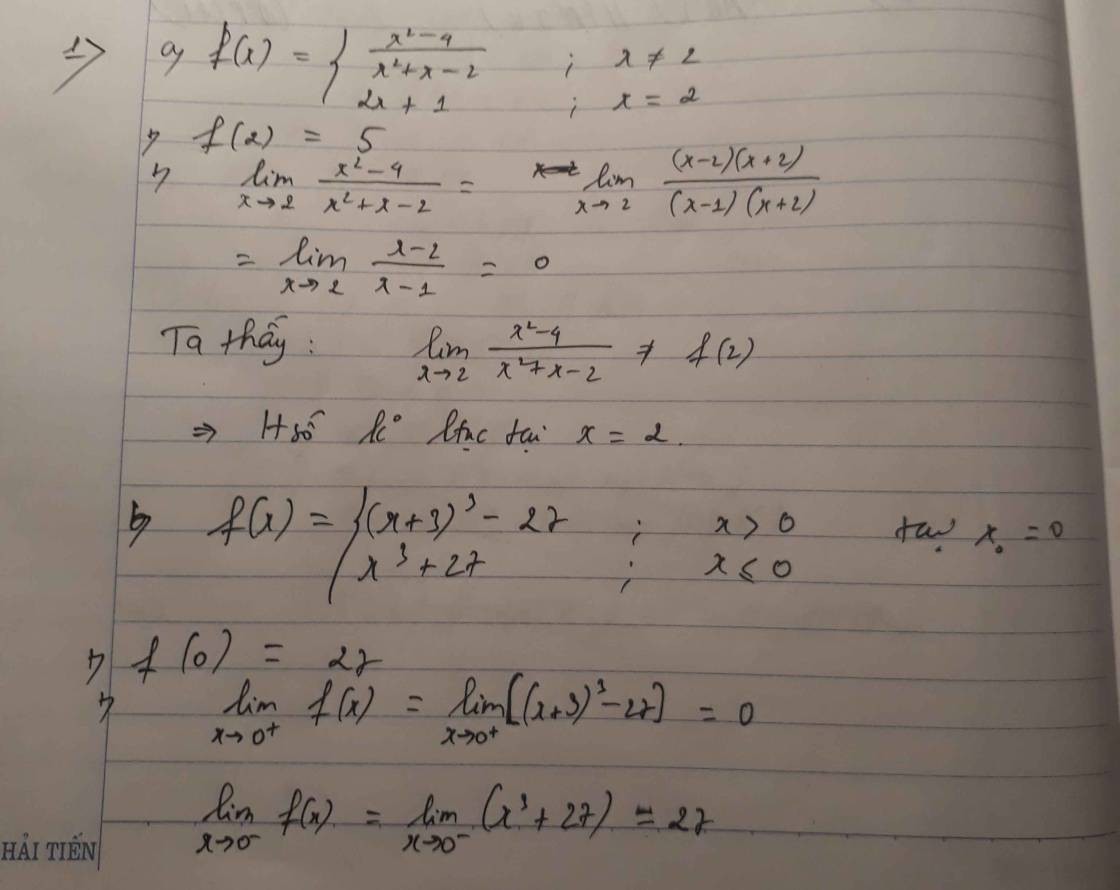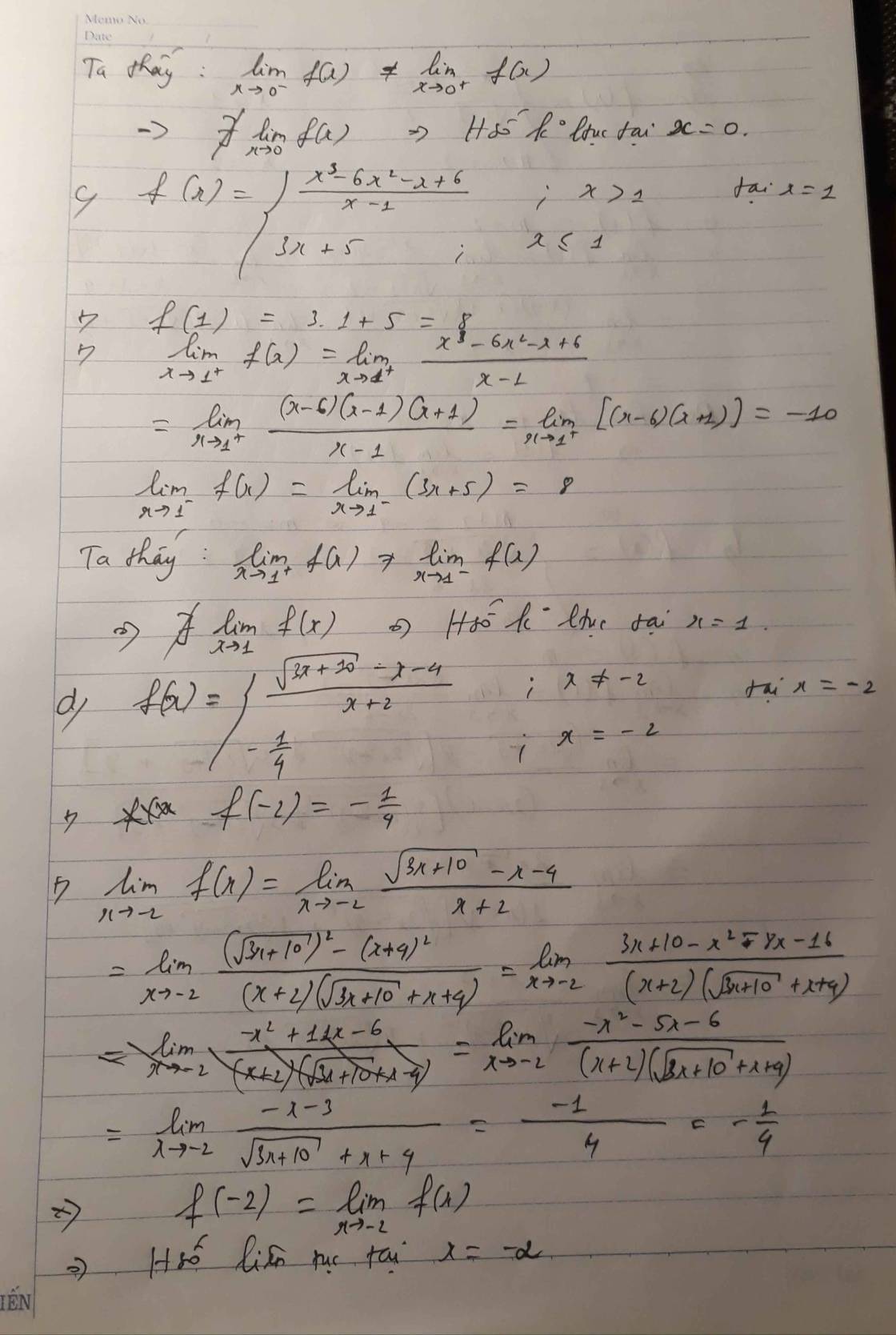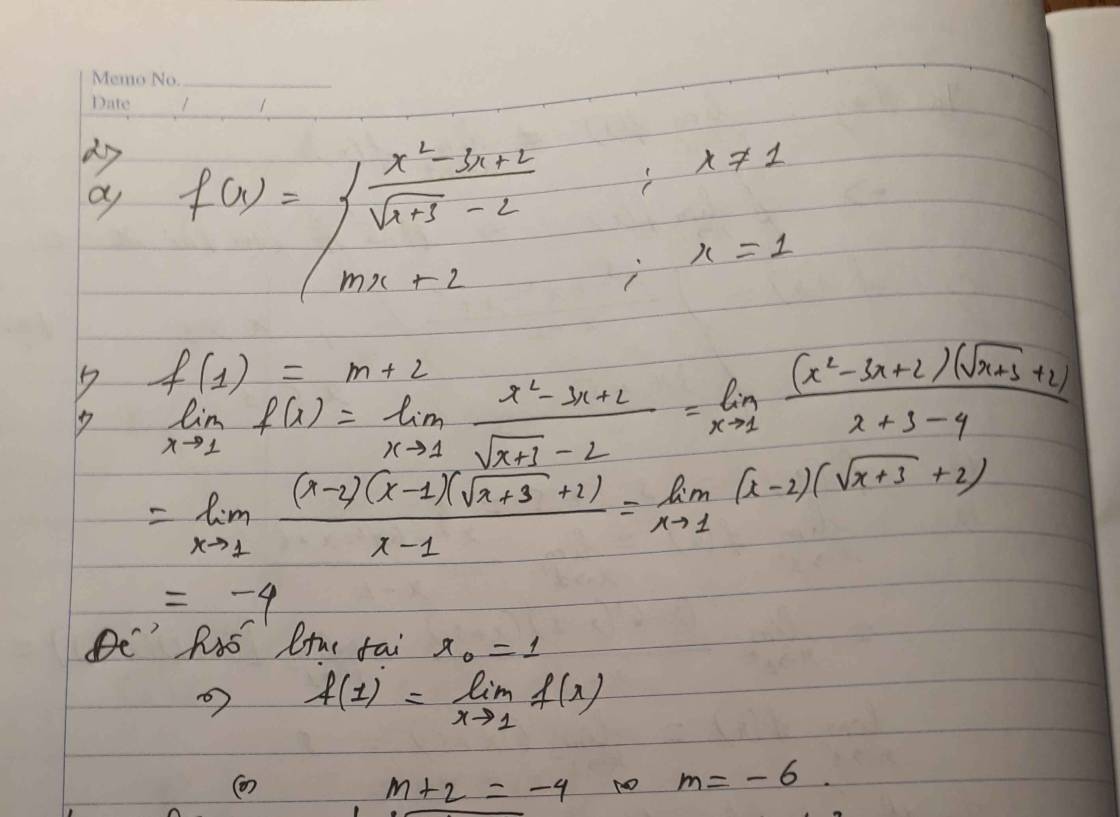Hãy nhập câu hỏi của bạn vào đây, nếu là tài khoản VIP, bạn sẽ được ưu tiên trả lời.

Chứng minh các biểu thức đã cho không phụ thuộc vào x.
Từ đó suy ra f'(x)=0
a) f(x)=1⇒f′(x)=0f(x)=1⇒f′(x)=0 ;
b) f(x)=1⇒f′(x)=0f(x)=1⇒f′(x)=0 ;
c) f(x)=\(\frac{1}{4}\)(\(\sqrt{2}\)-\(\sqrt{6}\))=>f'(x)=0
d,f(x)=\(\frac{3}{2}\)=>f'(x)=0

a: \(y=\left(x+2\right)\left(2x^2-3\right)\)
=>\(y'=\left(x+2\right)'\left(2x^2-3\right)+\left(x+2\right)\left(2x^2-3\right)'\)
=>\(y'=2x^2-3+\left(x+2\right)\cdot2x\)
\(\Leftrightarrow y'=2x^2-3+2x^2+4x=4x^2+4x-3\)
b: \(y=\left(x-1\right)^2\left(x+2\right)\)
=>\(y=\left(x^2-2x+1\right)\left(x+2\right)\)
=>\(y'=\left(x^2-2x+1\right)'\left(x+2\right)+\left(x^2-2x+1\right)\left(x+2\right)'\)
=>\(y'=\left(2x-2\right)\left(x+2\right)+\left(x^2-2x+1\right)\)
=>\(y'=2x^2+4x-2x-4+x^2-2x+1\)
=>\(y'=3x^2-3\)
c: \(y=\left(x^2-1\right)\left(2x+1\right)\)
=>\(y'=\left(x^2-1\right)'\left(2x+1\right)+\left(x^2-1\right)\left(2x+1\right)'\)
=>\(y'=2x\left(2x+1\right)+2\left(x^2-1\right)\)
=>\(y'=4x^2+2x+2x^2-2=6x^2+2x-2\)
d: \(y=\left(x+2\right)\left(2x^2-5\right)\)
=>\(y'=\left(x+2\right)'\left(2x^2-5\right)+\left(x+2\right)\left(2x^2-5\right)'\)
=>\(y'=2x^2-5+2x\left(x+2\right)=4x^2+4x-5\)

a: \(y'=\left(x^2+2x\right)'\left(x^3-3x\right)+\left(x^2+2x\right)\left(x^3-3x\right)'\)
\(=\left(2x+2\right)\left(x^3-3x\right)+\left(x^2+2x\right)\left(3x^2-3\right)\)
\(=2x^4-6x^2+2x^3-6x+3x^4-3x^2+6x^3-6x\)
\(=5x^4+8x^3-9x^2-12x\)
b: y=1/-2x+5
=>\(y'=\dfrac{2}{\left(2x+5\right)^2}\)
c: \(y'=\dfrac{\left(4x+5\right)'}{2\sqrt{4x+5}}=\dfrac{4}{2\sqrt{4x+5}}=\dfrac{2}{\sqrt{4x+5}}\)
d: \(y'=\left(sinx\right)'\cdot cosx+\left(sinx\right)\cdot\left(cosx\right)'\)
\(=cos^2x-sin^2x=cos2x\)
e: \(y=x\cdot e^x\)
=>\(y'=e^x+x\cdot e^x\)
f: \(y=ln^2x\)
=>\(y'=\dfrac{\left(-1\right)}{x^2}=-\dfrac{1}{x^2}\)

a) f'(x) = - 3sinx + 4cosx + 5. Do đó
f'(x) = 0 <=> - 3sinx + 4cosx + 5 = 0 <=> 3sinx - 4cosx = 5
<=> sinx -
cosx = 1. (1)
Đặt cos φ = , (φ ∈
) => sin φ =
, ta có:
(1) <=> sinx.cos φ - cosx.sin φ = 1 <=> sin(x - φ) = 1
<=> x - φ = + k2π <=> x = φ +
+ k2π, k ∈ Z.
b) f'(x) = - cos(π + x) - sin = cosx + sin
.
f'(x) = 0 <=> cosx + sin = 0 <=> sin
= - cosx <=> sin
= sin
<=> =
+ k2π hoặc
= π - x +
+ k2π
<=> x = π - k4π hoặc x = π + k, (k ∈ Z).

\(f'\left(x\right)=4x\Rightarrow y=2x^2+1-4x\)
\(y'\left(x\right)=4x-4=0\Rightarrow x=1\)

\(a,f'\left(x\right)=3x^2-6x\\ f'\left(x\right)\le0\Leftrightarrow3x^2-6x\le0\\ \Leftrightarrow3x\left(x-2\right)\le0\Leftrightarrow0\le x\le2\)
Lời giải:
a. $f'(x)\leq 0$
$\Leftrightarrow 3x^2-6x\leq 0$
$\Leftrightarrow x(x-2)\leq 0$
$\Leftrightarrow 0\leq x\leq 2$
b.
$f'(x)=x^2-3x+2=0$
$\Leftrightarrow 3x^2-6x=x^2-3x+2=0$
$\Leftrightarrow 3x(x-2)=(x-1)(x-2)=0$
$\Leftrightarrow x-2=0$
$\Leftrightarrow x=2$
c.
$g(x)=f(1-2x)+x^2-x+2022$
$g'(x)=(1-2x)'f(1-2x)'_{1-2x}+2x-1$
$=-2[3(1-2x)^2-6(1-2x)]+2x-1$
$=-24x^2+2x+5$
$g'(x)\geq 0$
$\Leftrightarrow -24x^2+2x+5\geq 0$
$\Leftrightarrow (5-12x)(2x-1)\geq 0$
$\Leftrightarrow \frac{-5}{12}\leq x\leq \frac{1}{2}$


